Establishment of the Statutes
The Parties,
conscious of the importance of emergency prevention, preparedness, mitigation and response, as well as post emergency rehabilitation as key points to ensure security and stability on the global scenario;convinced of the necessity of common international efforts to establish a cooperative platform, to work for coordinated emergency management;sure of the role of Member States in ensuring an effective Integrated System to deal with the issues of prevention, preparedness, mitigation and recovery of natural disasters, man-made emergencies and complex calamities;
reaffirming the importance of a fruitful collaboration between States, intergovernmental organizations, national emergency management organizations, non governmental organizations, research institutions, academia, civil society and the private sector on the field of emergency management;
convinced of the urgency to rapidly attain the various international undertakings, concerning international development, humanitarian assistance, emergency prevention, as well as promotion of Peace and Cooperation;
sure of the pressing need to mobilize all necessary efforts to divulgate the essential principles of emergency prevention among civil society, calling upon the International Community to a common effort in this respect;
have agreed as follows:
Article 1
The Organization may conclude Treaties and establish formal diplomatic relations with States and International Organizations, as well as dispose of its own diplomatic travel documents as well as of its own observer and intervention corps.
Article 2
For States adherent to the present document, the accession confers to the Organization the full recognition of its juridical personality of International Law, the immunity from jurisdiction and from the execution of the sentences for the Organization and its officers, the capacity to institute legal proceedings, in case of renunciation to the immunity from jurisdiction, the capacity to hold inviolable seats and goods, the exemption from custom duties and taxation, direct and indirect, on every emolument, donation, fund, property, goods, however conferred to the Organization and from the Organization, also without the need of concluding a subsequent Headquarters Agreement.
The President of the Organization may renounce, by written assertion, to any specific immunity, on a case-by-case basis. The diplomatic status of the Organization and of its officers will be duly certified by the delivery of diplomatic identity cards for the officers and by the delivery of diplomatic plates for its vehicles.
Article 3
Article 4
The Directional Secretariat, in charge for the ordinary and extraordinary activity of the Organization, includes the Office of the President -principal officer of the Organization and who nominates and coordinates any other officer-, the Office of the Inspector-General, in charge of internal affairs, as well as Departments and Commissions. The Directional Secretariat assigns all Officers, delegates and envoys off the Organization, as well as establishes delegations, representative units, observer and intervention missions. The receipt of any appointment within the Directional Secretariat implies the acceptance of the rules of procedure of the Organization. Candidatures are based on competence, integrity and professionalism, as well as on equitable geographic distribution and gender balance and are submitted to an evaluation procedure implying favourable advice by the Department of internal administration. In affirmative case the appointment is formalized by the Directional Secretariat together with the relevant terms of office and transmitted to the Office of the Inspector-General, who keeps the record of personnel and verifies the due observance of the organizational rules of procedure thereon. All acts incompatible with the constitutional mandate of the organization are sanctioned initially by written communication and, if the situation persists, through the cessation of functions.
Article 7
Official Members, which become part of the Organization by adhesion to the present Undertaking;
Associated Members, which acquire this status by concession from the Directional Secretariat of the Organization, provided that all States and Intergovernmental Organizations possess the right to become Associated Member of the Organization.
This right is notified in writing, by the Directional Secretariat of the Organization to States and to Intergovernmental Organizations, who will decide, according to their respective rules, whether to avail themselves, or not of such right. In case of silent consensus, the right is given as acquired after a period of three months from the date of said notification and the new Member is duly registered in the List of Associated Members, with the relevant prerogatives, like the faculty to attend the sessions of the Council of the Organization in observer capacity and to share its Integrated Emergency Prevention System.
Article 8
The Status of Associate Member does not confer the voting prerogative of Official Members, although Associate Members may become Official Members by accession to the present document, upon formal invitation from the Depositary. Also States being a part of a Federal State, of a Union, of a Confederation and so on, as well as autonomous administrative sub-units of a Country, may be invited to become Associate Members of the Organization, always as observers. A special category of Members (Affiliated Members) is represented by Academic and Research Institutions, National Agencies and Non Governmental Organizations. Affiliated members may participate to the Council’s sessions with consultative status. All Members of the Organization engage in cooperating for the attainment of the Organization’s objectives.
Article 10
The present Document, done in a single original, whose English and French texts are equal and equally authentic, is open to States and International Organizations having the capacity to conclude Treaties and enters into force one-hundred days from the date of deposit of the third Instrument of Accession with the Depositary and shall be open for subsequent Adhesions by deposit of Instrument of Accession with the Depositary.















